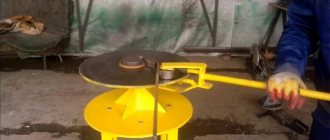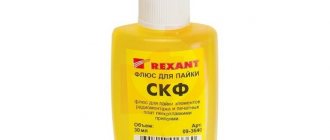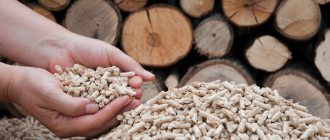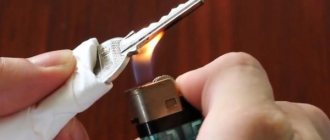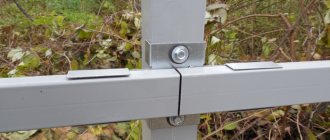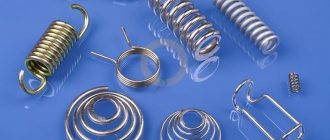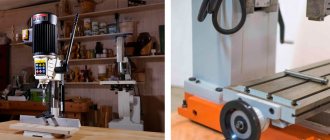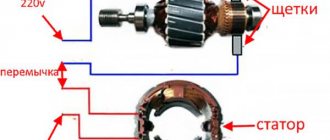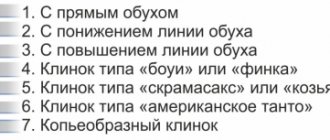No matter what country in the world your equipment was manufactured, our technicians will carry out a full diagnostic of it, restore the tire balancing machine, and also perform calibration and replace faulty parts. By carrying out timely monitoring and correcting existing minor faults, you are guaranteed to avoid disruptions in the work rhythm of the service station.
All processes are performed by highly qualified specialists using modern diagnostic equipment and tools. Our technicians have the necessary spare parts and consumables, so any work is carried out quickly and efficiently.
Structure of the apparatus
The basis of a balancing machine is the supports on which the workpieces and sensors are installed to determine their balance. During testing, the level of imbalance is determined, and based on this information, further actions are taken.
Depending on the type of support, balancing machines are divided into soft and hard. The first measure the parameters of the wheel, taking into account the vibrations of the supports. At the same time, the device is additionally configured for each detail, which allows for fairly accurate testing.
Rigid wheel balancing machines are capable of testing different types of parts with the same equipment. This is very convenient, but the quality of measurements can be seriously affected.
In both the first and second versions of the device, the speed sensor plays a special role. No less important for such a machine is the sensor that measures the rotation angles. Depending on the information input option, balancing devices can be manual or automatic.
Principle of operation
The main task of the balancing machine is to determine the balance of the geometric center of the wheel with its mass. An unbalanced part makes any job difficult and can lead to serious damage. Eliminating imbalance allows you to:
- Increase the service life of bearings.
- Prevent premature wear of tires.
- Increase the service life of suspensions.
Most often, such machines are in demand during the period when drivers change the type of tire. Balancing of out-of-tune parts can only be done using special equipment. There are machines at service stations that can work with a wide variety of discs in different modes.
There are several options by which you can correct imbalance of wheels or other parts:
- Balancing rings - used in the process of repairing metalworking machines.
- Adjusting screws - special pins are screwed into the unbalanced part, through which it is adjusted.
- Drilling is the most popular balancing option. This is done by creating holes that change the weight of the parts being processed.
Wheel balancing machines, their design and repair
The balancing machine is designed to detect imbalance of parts during rotation. The machines are most widely used in tire shops. They are also used in mechanical engineering to balance propellers, cardan shafts and turbines and prevent beating and breakage of machine parts. Some models are equipped with mechanisms for automatically adjusting the balance.
What is balancing
A wheel is considered unbalanced if its geometric center and center of mass do not coincide. When such a disk rotates, powerful centrifugal forces appear, causing the car to vibrate. In addition, suspension parts and tires wear out faster.
Balancing driveshafts and wheels allows you to avoid uneven wear of tires and increase the life of bearings and suspension. The greatest demand for balancing driveshafts and disks occurs in the off-season, when car enthusiasts switch from winter tires to summer tires and vice versa.
A wheel or driveshaft can only be balanced using special equipment. It’s not enough just to assemble the wheel correctly, it needs to be balanced. Specialized balancing machines work with disks of different sizes and shapes and provide different operating modes.
Machine device
The structure consists of supports on which the wheel is mounted, an electric motor and measurement sensors. During tire mounting, the part rotates, sensors detect pressure or vibration. Based on the data obtained, the location of imbalance is identified.
Balancing machine repair
After prolonged use, individual parts of the device may malfunction. Conventionally, the origin of the breakdown can be divided into mechanical disorders and problems with electrical components. In the latter case, problems with the sensors are detected. Mechanical problems most often occur after falls or strong impacts.
Problems with the machine can be detected by the following signs:
- Normal balancing requires several cycles of operation.
- The parameters of the tested disks are determined incorrectly.
To repair a balancing machine, the type of failure is first determined by calibration. After this, the faulty part is replaced. Repairing a damaged part is more difficult than buying a new one. In addition, repaired structural elements most often break again after a relatively short period of time.
Repair and maintenance of tire equipment
We can help with the selection of the best equipment, its technical inspection and monitoring by providing maintenance and repair of tire fitting equipment manufactured by domestic and foreign manufacturers. Our specialists install and offer subsequent maintenance of machines for wheel alignment and balancing of car rims. They will also install and set up important software, as well as repair tire fitting equipment, regardless of its modification, and restore the functionality of power supplies and measurement modules. We offer services for diagnosing and replacing failed or worn parts.
Homemade device
It is possible to make a calibrating machine at home, but only the mechanical part. Electrical equipment and measurement sensors should be purchased ready-made. The device drawings should be selected in accordance with the features of the future use of the machine. The best option for creating a balancing machine is presented in these step-by-step instructions:
- We create a shaft. It should be turned so that at one end there is a ready-made place for mounting bearings, and at the other there is a thread for installing a washer.
- We install bearings. It is best to use those that have already been used, but have not yet used up the main resource. Such parts will create minimal resistance.
- We form the apparatus stand. For these purposes, it is best to use a pipe with a diameter of 5.2 centimeters. At the upper end of the support we mount it from above and from the side.
- For convenient placement of the part, we recommend creating a support platform.
Video: DIY wheel balancing machine.
Nuances of operation
To start working with the machine, you need to fix the disk. This can be done using a nut and a cone. After checking the reliability of the fastening, you can begin measuring procedures. The disk is spun up, and then its performance is compared with the reference ones. Deviations should be in the range of 2 and 1.5 g. The first indicator is horizontal, the second is radial.
After the initial testing, all weights should be removed and repeated measurements should be taken. The disc under test stops at the heaviest point downwards. Be sure to take this information into account when measuring disk parameters. After this, the wheel must be twisted 90 degrees and a load is hung on the opposite side. If the wheel stops rotating when turned 45 degrees, it means that the do-it-yourself calibration was done successfully.
Republished by Blog Post Promoter
NAOMINAservice
Calibration of a balancing machine, why it is needed and why it is better to finish weights on the floor rather than on the machine.
Over time, the machine begins to lie, this is expressed in the weight that it asks to hang on the wheel, for example, we have a wheel 16 of radius 6.5 width, we hang it on the machine, enter its parameters manually because the ruler can also deceive if it is electronic, and we need accurate information. We press the start button, the machine rotates the wheel, calculates the imbalance, and gives the result “25-30”, we put weights on the stamped wheel and rotate again, look at the result “05-10” we finish off the weights and start the machine again, we perform this procedure 3 times. if after the 3rd time the machine still asks to add weight 1, you need to look at the cones, how they sit on the shaft, whether they have any play. 2, the machine urgently needs calibration. If it turns out that after installing the weights, the machine shows “00-00”, find a weight weighing 100 grams and stuff it on either side of the disk and start the machine after stopping, the imbalance of a good machine should be “00-100” we move the weight to the other side and start the machine, look at “100-00” which means the machine, cones, shaft, clamping nut are in excellent condition and do not require attention, in this case we continue to work. if the machine gives out, plus or minus 5g 10g on the side “05-95” “00-110” you can also work on it and this imbalance will be noticeable on the wheel, but it’s worth thinking about calibrating the machine, sometimes in these cases it is necessary to carry out a custom calibration and the values will return to the normal position, it is also worth paying attention to the cone; if the play on the shaft is very large, or the cone has grooves, then it is necessary to urgently replace this cone and check all the others. If after you have spun a balanced wheel with a weight of 100 g and the machine gives you “30-120” or another value different from
“00-100” with excess weight on one side of more than 15g, then you need to urgently calibrate the machine, this will already be noticeable on the wheel and the client will come back again and you will have to redo everything at your own expense or he will go to another tire shop, and more to you will never return. If after calibrating the machine you cannot reach the result “00-100”, then you need to
1 carry out maintenance of the machine, this is to clean the shaft from dirt, blow all the boards from dust inside the machine, clean the phase disk from dust, blow out the phase disk.
2 check the cones for play.
3 measure the voltage in the network should be 220V + -5V
4 after these procedures, if the cones are in order and there is no need to change them, the voltage in the network corresponds to 220V, recalibrate the balancing machine, in 99% of cases the machine begins to show the correct values. 1% remains for various malfunctions, such as incorrect values of potentiometers (rulers), a broken phase sensor (responsible for the 12 o’clock position), a malfunction of the power board or control board, wear of the Thames sensors, this malfunction in most cases applies to those who finish off the weights directly on the shaft, the drive belt is tightly stretched, the shaft touches the brake or when rotating something touches the shaft, the machine is standing on a non-solid base (wooden floor) should be on concrete, excluding side rolling and vibration, the machine must also be screwed to the floor, The electric motor burned out, the shaft bearings have play (low-quality bearings, those who finish loading the shaft or machine for more than 10 years)
It is important to check the machine for large imbalances and do calibration on time; a good Italian machine requires calibration once a year, but to be on the safe side and for reliability, it is done 2 times a year before the season. A German machine (“the real one” has a lot of fakes) requires service calibration once a year and, as a rule, a custom calibration is done several times; on some Germans, when you turn on the machine, the machine will not start working until the operator performs a service calibration. A machine from the USA also requires one calibration once a year without service calibration approaches. Chinese machines, the majority of which require 2 times service calibration before the season and 4 times user calibration (2 times of which take place during the season and are done by the operator, and 2 times between seasons.
A simple rule, the machine must be calibrated 2 times a year, and maintenance must be carried out 1 time a year!!!!!!!!
